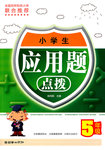题目内容
Most of us have quite good memories, but our memories are limited. For example, we cannot remember everyone we have ever met or what we did on every single day of our lives. However, there are some people who do have prodigious memories. These people have a rare condition known as savant syndrome (学者症候群). Savants suffer from a developmental disorder, but they also exhibit great talents that contrast(显出差异) sharply with their physical and mental disabilities.
Kim Peek (1951-2009) was a savant who lived in Salt Lake City, Utah, in the United States. He was born with damage to parts of his brain, but it seemed that other parts of his brain, particularly those relating to memory, became over-developed.
Peek’s unique abilities appeared at a very early age. When he was just 20 months old, he could already remember every book that was read to him. Peek could read two pages of a book at the same time---one page with the right eye and one with the left---in less than 10 seconds and remember everything he read. By the time he died, Peek had memorized more than 9,000 books. He could remember all the names and numbers in a variety of telephone books. He could remember thousands of facts about history, literature, geography and sports.
Dr. David Treffert, an expert on savant syndrome, once described Peek as “a living Google” because of his astonishing ability to memorize and connect facts. However, at the same time, Peek was unable to carry out simple tasks, such as brushing his hair or getting dressed, and he needed others to help him. In 1989, the movie Rain Man won the Oscar for best Picture. The main character in the movie, played by Dustin Hoffman, was based on Kim Peek’s life. He started to appear on television, where he would amaze audiences by correctly answering difficult questions on different topics. Peek became world famous, and he and his father began touring widely to talk about overcoming disabilities. He inspired a great many people with his words. “Recognizing and respecting differences in others, and treating everyone in the way you want them to treat you, will make our world a better place for everyone. Everyone is different.”
1.The underlined word “prodigious” in Paragraph 1 probably means ________.
A. happy B. vivid C. amazing D. short
2.According to the text, Peek ________.
A. could take care of himself
B. was born with a good memory
C. was the student of Dr. David Treffert
D. became brain-damaged at 20 months old
3.How is Paragraph 3 mainly developed?
A. By proving facts. B. By following time order.
C. By analyzing causes. D. By making comparisons.
4.Peek’s words suggest that we should ________.
A. respect different cultures
B. listen to different opinions
C. treat different people differently
D. be respectful of others’differences
 精英口算卡系列答案
精英口算卡系列答案 应用题点拨系列答案
应用题点拨系列答案
